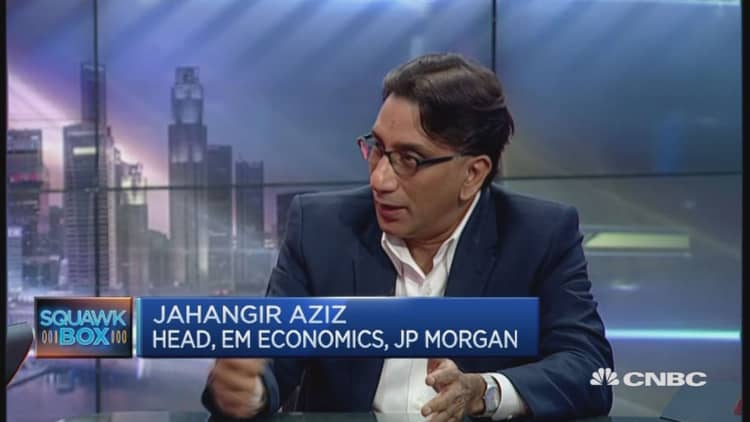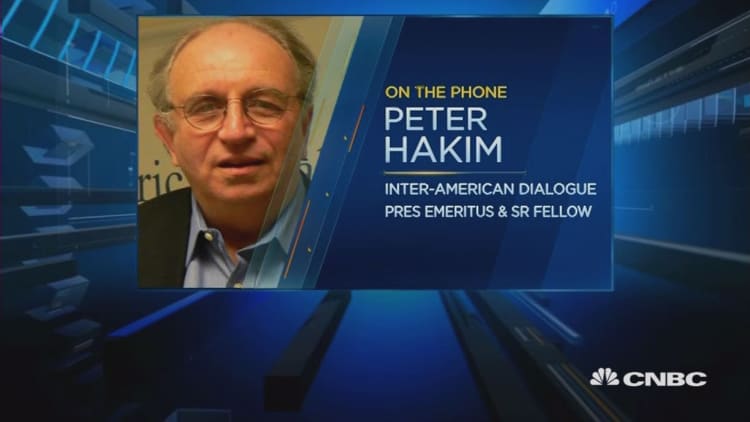

Brazil held interest rates steady at near-10-year high of 14.25 percent on Wednesday, but a cut is expected in the months ahead, said JPMorgan.
The country is struggling with a deep recession, with unemployment currently running at more than 11 percent.
But the Banco Central do Brasil has little room to move amid rampant inflation. Inflation rose to 9.32 percent in May, more than double the official middle of the Brazilian target range, on the back of rising government-controlled prices and a weaker .
In a statement, the central bank said that the expectations for inflation to remain far from its targets did not provide room for it to ease monetary policy, Marketwatch reported.
Jahangir Aziz, head of emerging market economics at JPMorgan told CNBC's "Squawk Box" that the first rate cut would likely come in July, although it may be postponed due to high inflation.
Any cut would probably be limited to 150 basis points, he said, taking the main rate to 12.75 percent.
"They have a lot of territory to cover," said Bill Adams, senior international economist at PNC Financial Services.
Brazil is due to host the Summer Olympic Games in August in Rio but a big bounce in growth from the sporting event was unlikely, Adams told CNBC's "The Rundown," given that Brazil hosted the FIFA World Cup in 2014.
The Zika virus outbreak added further economic jitters by dampening the tourism industry.
"Both political risks and downside risks to growth are both still very substantial," Adams said.

With Brazil's May services purchasing managers index (PMI) tumbling to levels not seen since 2007 and the manufacturing counterpart slipping to its weakest level since the Global Financial Crisis, "it still looks like a pretty adverse environment for businesses to generate profits in Brazil," PNC's Adams added.
Aziz said the political turmoil in Brazil needed to be addressed before any economic reforms could take place.
"The government needs to minimize noise around the political process," because pressing, sustainable reforms in fiscal policies, pensions and societal security required congressional support, Aziz added.
Interim Brazilian President Michel Temer, who took over from Dilma Rousseff as she stood trial for allegedly breaking budget laws, has promised a shift toward more market-friendly policies to rebuild investor confidence in the once-booming economy.
On Tuesday Brazil's Senate confirmed the appointment of Ilan Goldfajn, a former Wall Street economist and central bank director, to head the central bank.
- Reuters contributed to this report.

